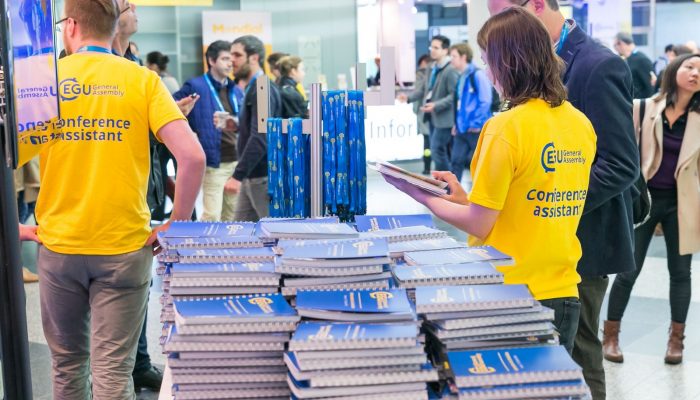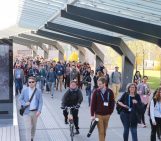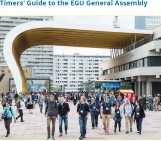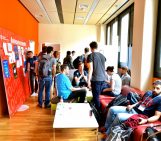
Wondering what to expect at the General Assembly this year? Here are some of the highlights:
Union Symposia (US)
For events which will have general appeal, regardless of your field of research, look no further than the Union Symposia. In particular, if you want to stand up for science at a time when (some) politics seems at odds with science, come along to Union Symposia 3, Make Facts Great Again. An impressive panel composed of Christine McEntee (AGU Executive Director), Sir David King (Chief Scientific Adviser to the UK Government 2000–2007), Christiana Figueres (Executive Secretary of the United Nations Framework Convention on Climate Change 2010–2016) and Heike Langenberg (Nature Geoscience Chief Editor) will discuss what can scientists do to further the progress of scientific research and ensure mainstream scientific views are accepted and taken seriously by policymakers and the public.
The very first of the Union Symposia, organized in collaboration with the European and maerica space agencies (ESA and NASA) will highlight Earth observation missions and there will be talks on ESA’s and NASA’s planetary and space programmers. On Wednesday, scientists from different fields will come together to explore the key role plants play in the climate system in Union Symposia 1: Vegetation-climate interactions across time scales Finally, there’s the EGU Awards Ceremony – set to celebrate excellent research and achievement in the Earth, planetary and space sciences.
Great Debates (GDB)
This year we’re holding not one, not two, but six Great Debates! The topics covered this year are varied, from: Arctic environmental change: global opportunities and threats (organized with AGU), through to whether 2 degrees is possible without relying on carbon storage and capture? Scientific publishing is also hot on the Great Debate agenda, with two debates dedicated to the subject, including the very first early career scientist (ECS) specific Great Debate: Should early career scientists be judged by their publication record? A set of group debates. Discussions also explore the Earth’s deep past (Great Debate on Great Extinctions) and the planet’s future (transition to next generation cities and planet Earth future). Whether you are in Vienna or elsewhere, be sure to follow and join in the debates using #EGU17GDB on twitter.
Educational & Outreach Symposia (EOS)
Educational and Outreach Symposia are sessions dedicated to all things education and outreach, and include the Geosciences Information for Teachers (GIFT) workshop, a long-running event for high school teachers that helps shorten the time between discovery and textbook.
Medal Lectures and Lectures organized by related scientific societies (ML, LRS)
There will be five Lectures organized by related scientific societies as well as a grand total of 45 Medal Lectures this year!
Meet EGU (EGU)
Meet EGU does exactly what it says on the tin – these sessions are a great opportunity to get to know your division president and early career representative, put faces to names and find out what’s going on in the Union.
Townhall Meetings (TM)
Townhall Meetings allow participants to take part in a lot of open discussion. This year’s meetings cover a huge variety of topics, from a discussion, moderated by ESA’s Director of Earth Observation Programmes, on how space data impacts EGU participants, through to questioning the formalizatin of the “Anthropocene” and how the interconnection between Open Access, Open Data and Free Open Source Software can be improved to develop the Open Science movement.
Splinter Meetings (SPM)
Like Townhall Meetings, Splinter Meetings are organised by participants, but they are typically smaller and can be either public or by invitation only.
The EGU General Assembly is taking place in Vienna, Austria from 23 to 28 April. Check out the full session programme on the General Assembly website.




